On the afternoon of August 15, 2025, the 8th session of “Criminal Defense Talks” organized by Criminal Department II was successfully held in King&Capital Law Firm. The program was delivered by Mr. Zhang Xutao, Partner of Guoco Law Firm, Mr. Jin Yixiang, Lecturer of Chengdu University Law School, Mr. Wang Xintong, Senior Partner of King&Capital Law Firm, Mr. Wang Changqing, Director of Beijing Shangfu Law Firm, and Mr. Fang Ligang, Director of Beijing Yingshen Law Firm.
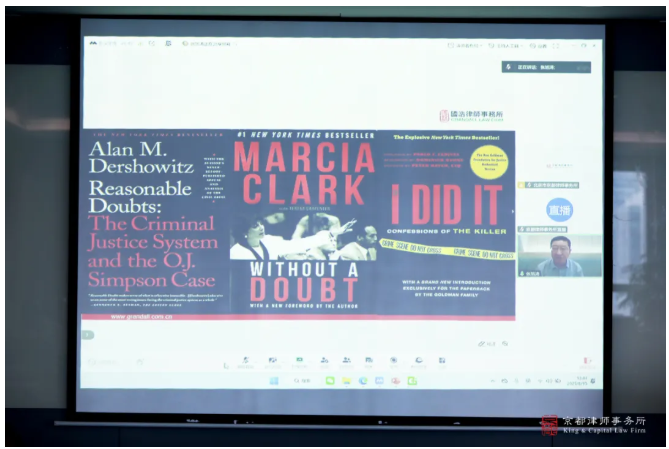
Zhang Xutao
Mr. Zhang Xutao shared his views on Simpson's case, firstly, he made a brief review of the case, sorted out the timeline of the case, the key evidence and the process of litigation, including the key points such as the occurrence of the case on June 12, 1994, the questioning of Simpson and the taking of the blood samples on the 13th, the issuance of the warrant for his arrest on the 17th, the commencement of the court hearing in January 1995, and the jury verdict of acquittal in October. He focused on analyzing the key to winning and losing the case, pointing out that there were many loopholes in the prosecution's evidence, such as racist tendencies of police officer Foreman as a key evidence finder, contamination of evidence at the scene, improper handling of blood samples, etc., while the defense dismantled the logic of the prosecution's accusations through the Wigmore's Evidence Analysis Method, cut the chain of evidence, and utilized a team of experts to discover the evidentiary problems, which combined with litigation strategy to take advantage of the situation. He emphasized that Chinese lawyers can gain many insights from the case, including establishing game thinking, focusing on information symmetry and dynamic game; mastering core professional skills, such as evidence analysis, cross-examination and persuasion; focusing on case operation and teamwork, and reasonably integrating resources; and dealing with public media relations, aiming to maximize the interests of their clients. In addition, he also mentioned the significance of the relevant books and the case for China's criminal justice practice, believing that the case reflects the problems in China's criminal case handling like a mirror and has important reference value.
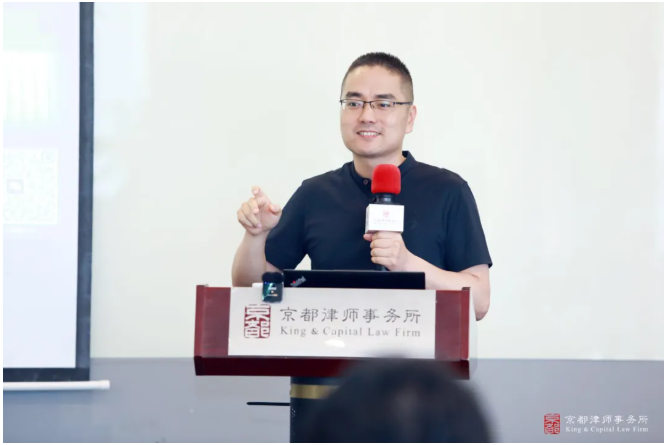
Jin Yixiang
Dr. Jin Yixiang focuses on the trial review of the Simpson case, using real-time pause analysis by playing the trial video to explain the details of the case in depth. He has conducted a number of professional seminars on the Simpson case, and has conducted the most granular analysis of the case, which is as precise as the right and wrong analysis of the prosecutor's verbal expressions in the courtroom. He mentioned the core members and operation of the Simpson defense team “Dream Team”, pointing out how Johnnie Cochran gradually became the soul of the team and the chief lawyer through his own case management ability in the case. In the trial analysis, he pointed out that there were many mistakes made by the prosecution, such as inappropriate questioning methods leading to the influence of the effectiveness of the evidence, failure to effectively respond to the defense cross-examination, insufficient control of witnesses, etc., while the defense exposed the prosecution's evidence problems through accurate cross-examination, and used litigation skills such as the open-door rule to gain an advantage. He also emphasized the importance of trial skills (e.g., cross-examination, evidence analysis) in comparison with Sun Yang's case, arguing that even in unfamiliar areas, mastering the core trial skills can still be effective in defense, and mentioning that reviewing the case can help lawyers “get rid of the phantom”.
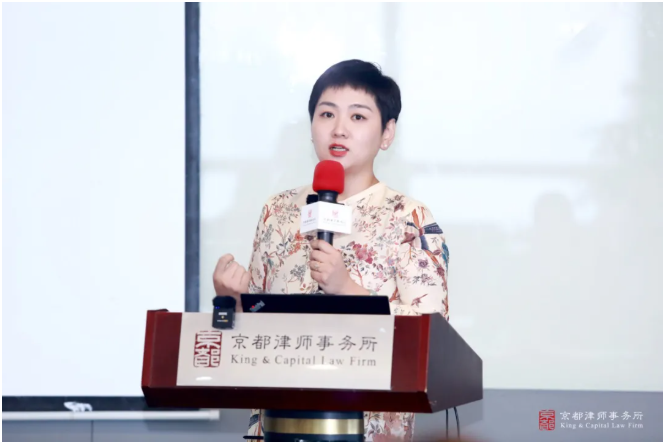
Wang Xin Tong
Focusing on Dr. Changyu Li's testimony as an expert witness for the defense in the Simpson case, Ms. Wang introduced in detail the basic situation of the trial: there were 126 witnesses and 857 pieces of evidence for the defense, and the prosecution spent $19 million while the defense spent $10 million. Based on the available trial videos, Ms. Wang carefully reviewed the trial transcripts of Dr. Li Changyu's 5 days of court appearances, totaling 18 hours, and analyzed the expert witnesses' courtroom skills based on first-hand information. She mentioned that Dr. Li Changyu appeared in court for 5 days and testified for 18 hours, analyzed the key evidence, and pointed out the problems of the prosecution's evidence, such as the blood stains on the blood socks contained EDTA (blood preservative), and the existence of horizontal stripe marks in the shoe prints at the scene might point to a third person. Ms. Wang analyzed Lee Changyu's professional performance as an expert witness, including the use of live demonstration, using white paper and red ink to show the bloodstain pattern, helping the jury understand the professional issues, maintaining neutrality and objectivity, and adhering to the professional judgment based on her own counsel's expectations even in the face of favorable representations. At the same time, she discussed the questioning strategies of both the prosecution and the defense for expert witnesses, such as the defense leading Lee Changyu to favorable conclusions through circuitous questioning, and the prosecution attempting to reduce the impact of his testimony by questioning the timeliness of the evidence, the conditions of the filming, etc. She emphasized the importance of the professionalism and neutrality of the expert witnesses and the attorneys' grasp of the questioning scales on the effectiveness of the trial.
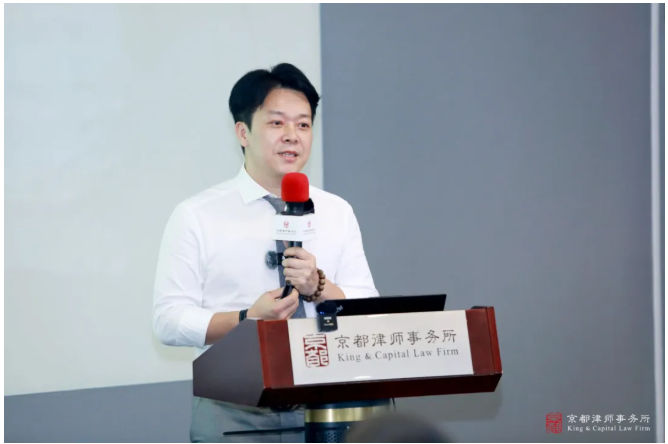
Wang Changqing
Mr. Wang Changqing summarized the inspiration for Chinese lawyers from the Simpson case. He emphasized the importance of teamwork, pointing out that the “dream team” in the case consisted of experts in different fields, and that the division of labor is the key to winning the case, and that Chinese lawyers need to join forces both horizontally and vertically to deal with major and complex cases. He mentioned that we should be good at cooperating with the media, that lawyers are relatively weak at present, with the power of the media can promote the fair handling of the case, but we need to take the interests of the client as the highest purpose, avoid speculation, and cited the case of Guangdong black case, entrepreneurs are not guilty in the second trial, and other examples to illustrate. He also analyzed the key evidence issues in the case, such as the failure of gloves, the blood socks containing EDTA, the use of recording evidence, etc. He emphasized the importance of reasonable doubt, and pointed out that Chinese lawyers should concretize the standard of “beyond all reasonable doubt” in the Criminal Procedure Law. In addition, he believes that cross-examination is the core of measuring the level of lawyers, and that the rules should be applied flexibly. At the same time, lawyers should have the qualities of love, courage, and challenging spirit, and should improve the quality of defense by familiarizing themselves with the facts of the case, memorizing the legal provisions, referring to cases, and consulting with various parties to improve the quality of defense, as well as sticking to the original intention of their profession.
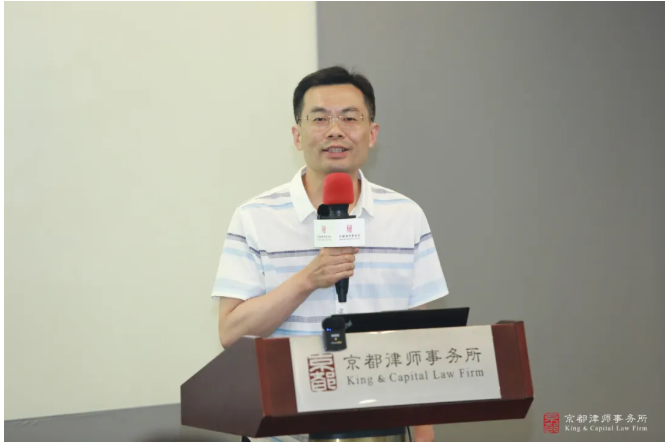
Fang Ligang
Mr. Fang Ligang discusses the gains and losses of cross-examination by analyzing the performance of defense lawyers and prosecutors in the Simpson case. He introduces F. Lee Bailey's growing experience, including his rise to fame at the age of 28 when he took over the Sam Shepard case, his low point after his failed defense in 1976, and his joining the Simpson defense team due to his friendship with Shapiro, etc. He points out that his performance in the case was both brilliant, such as exposing Foreman's racism and lies through cross-examination, and clumsy, such as his unpreparedness in the questioning of the sheriff and the FBI expert, and the lack of preparation in the cross-examination of the FBI expert. sheriff and FBI experts, and even being challenged by his client. He analyzes Martha Clarke's failures as a prosecutor, such as incorrectly identifying the time of the crime, over-burdening herself with the burden of proof, and letting Simpson try on the gloves in court leading to adverse repercussions. He emphasized that barristers are not always at the peak, but from the trough back to the peak, Simpson's case of the “dream team” is praised by outsiders, in fact, the members of the shortcomings of each, and ultimately won the case stems more from the prosecution's poor performance. He believes that criminal lawyers need to bear tremendous pressure, not only to defend their clients, but also to guard the public's expectations of justice, it is crucial to uphold the professional beliefs.
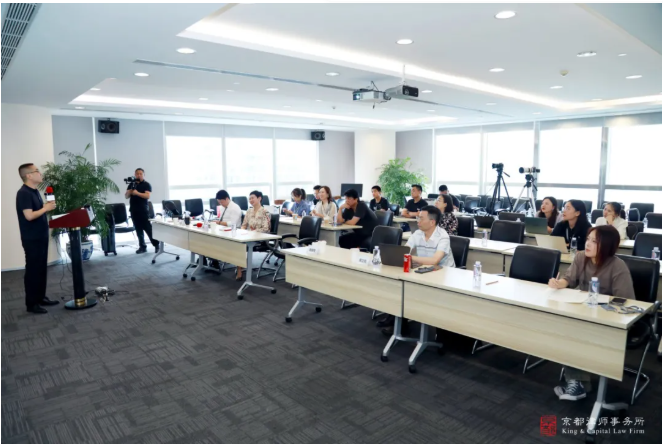
The scene of the event
The eighth session of “Criminal Defense Talks” focused on the litigation strategy and skills of the Simpson case. The guests shared their practical experience and defense wisdom from case review and key points, trial details and cross-examination techniques, expert witness testimony and questioning strategies, teamwork and media response, as well as cross-examination gains and losses and professionalism of lawyers, providing valuable reference for the majority of criminal defense lawyers to enhance their defense skills and broaden their defense thinking. The seminar ended successfully in a warm exchange of ideas and experience collision.
Translated with DeepL.com (free version)




